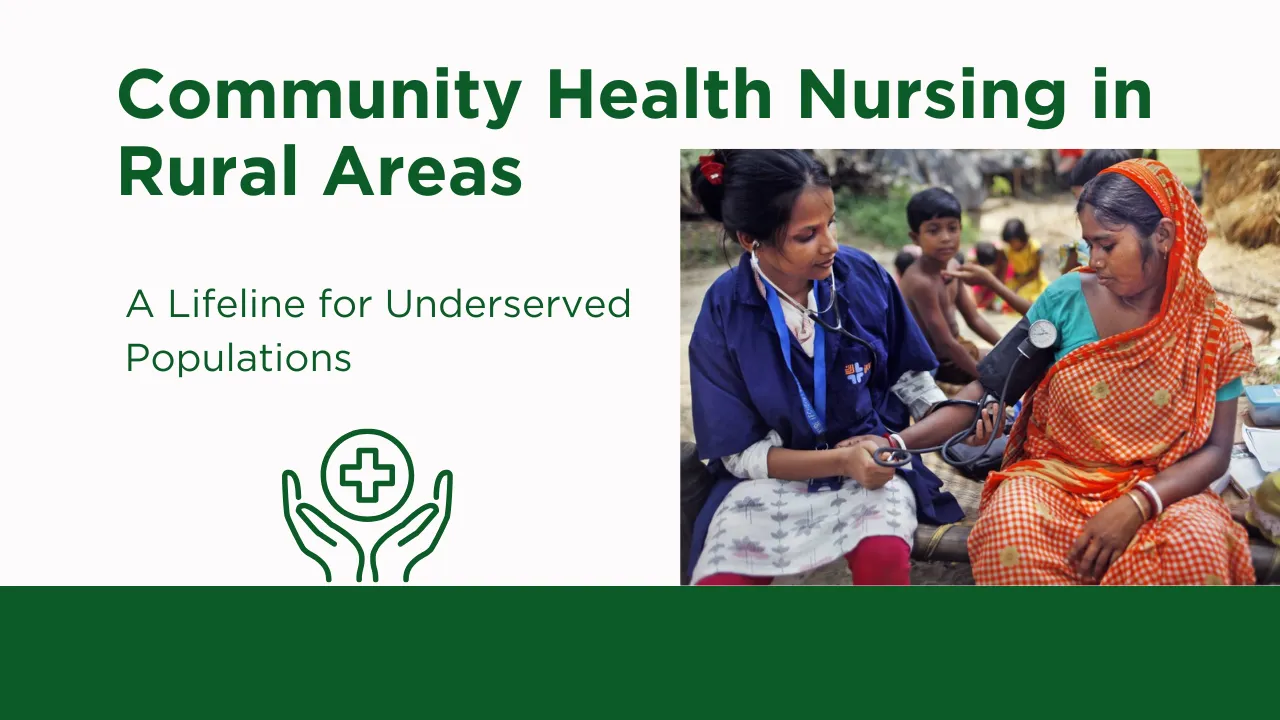Future Scope of Nursing: The healthcare industry is evolving rapidly, and at the heart of this transformation stands one of its most vital pillars—nursing. With rising patient needs, an expanding global population, and a push toward more accessible healthcare, the future scope of nursing is broader and brighter than ever. In both India and international healthcare systems, skilled nurses are increasingly seen not just as caregivers but as central figures in clinical leadership, public health, and innovation.
From critical care wards in India to telehealth clinics overseas, nursing is emerging as a dynamic, respected, and future-ready profession.
Future Scope of Nursing
The future scope of nursing encompasses a wide range of roles and possibilities. Nurses today are not limited to bedside care but are branching into leadership, education, research, and technology-enabled services. Whether practicing in India or abroad, nursing professionals are finding rewarding opportunities that align with their aspirations and skills.
Overview Table: Future Scope of Nursing in India vs Abroad
| Area | Nursing in India | Nursing Abroad |
| Demand | Rising due to population growth and healthcare reforms | High due to global nursing shortages |
| Work Settings | Hospitals, CHCs, home care, schools, industries | Hospitals, aged care, advanced practice, research |
| Specialization | Critical care, oncology, mental health, pediatrics | Cardiology, geriatrics, perioperative, psychiatric |
| Salary Prospects | Improving steadily, varies by location and experience | High pay scales, better benefits |
| Further Education | M.Sc., Post-Basic B.Sc., PhD opportunities | Specialization, advanced practice nursing |
| Licensing | Registered Nurse under State/INC registration | Requires NCLEX, OET, CBT, IELTS, or local licensing |
| Immigration Pathways | Limited scope | Often linked with permanent residency or work visas |
| Recognition | Increasing respect and professionalization | Indian nurses are highly regarded internationally |
The Future of Nursing in India
India’s healthcare infrastructure is expanding to meet the needs of over 1.4 billion people. This expansion directly impacts the demand for nursing professionals, especially those with advanced education and practical experience.
1. Growing Demand
Government policies such as Ayushman Bharat and improved public health outreach are creating thousands of new job openings in both rural and urban healthcare sectors. Nurses are also essential in newly opened medical colleges, private hospitals, and community health projects.
2. Career Diversity
From government hospitals and primary health centers to private clinics and industrial healthcare units, nurses have multiple employment avenues. Specialized roles in ICUs, maternity wards, mental health institutions, and rehabilitation centers offer focused career tracks.
3. Academic & Research Opportunities
With the rise of nursing colleges, the demand for nurse educators and clinical trainers is surging. Those with M.Sc. or PhD degrees can lead research studies or teach in academic institutions, shaping future nursing generations.
4. Home Healthcare and Entrepreneurship
The rise of home-based care, elderly services, and wellness industries has opened doors for entrepreneurial nurses. Many are also entering the telehealth space, offering virtual consultation and care planning.
5. Financial Growth
While starting salaries for nurses in India remain modest, those with experience or specialization can earn significantly more, especially in metropolitan hospitals or leadership roles.
The Future of Nursing Abroad
Countries such as the USA, UK, Canada, Australia, New Zealand, and Germany are experiencing a serious shortfall in nursing staff, driven by aging populations and increased chronic illness. This creates significant opportunities for Indian nurses willing to meet international standards.
1. Global Shortage = High Demand
The World Health Organization (WHO) projects a global shortage of 5.7 million nurses by 2030. Countries are actively recruiting skilled nurses from abroad, including India, which has long been a source of well-trained professionals.
2. Better Pay & Work Conditions
International jobs typically offer much higher salaries, medical insurance, paid leave, housing assistance, and educational benefits. Registered Nurses (RNs) in countries like Canada or the UK earn 3 to 5 times more than their counterparts in India.
3. Specialization & Career Growth
Abroad, nurses can specialize in high-demand areas like anesthesiology, midwifery, palliative care, gerontology, and psychiatric nursing. Advanced Practice Registered Nurses (APRNs) often hold leadership positions or run independent practices.
4. Respect & Recognition
Indian nurses are often praised for their work ethic, adaptability, and strong academic foundation. Many countries recognize Indian degrees (with minor adjustments) and offer transition programs for international practice.
Key Considerations for Working Abroad
While the future looks promising, aspiring nurses must plan carefully to meet eligibility standards abroad.
- Licensing Exams: Countries like the US require the NCLEX-RN. The UK needs CBT and OSCE, while most countries also demand English proficiency via IELTS or OET.
- Credential Evaluation: Educational documents may be reviewed by organizations like CGFNS (USA) or NMC (UK) for equivalency.
- Visa Processing: Ensure you meet the legal and immigration requirements. Many job offers include visa sponsorship.
- Cultural Adaptation: Be ready to adjust to different work cultures, patient care models, and ethical standards.
Conclusion: A Future Full of Promise
The future scope of nursing is vast, meaningful, and filled with possibilities—both in India and around the world. As the profession continues to gain respect and responsibility, now is the ideal time to invest in education, skill-building, and career planning.
Whether you dream of serving in your local community or practicing abroad, nursing offers a deeply fulfilling path where your care can change lives every single day.












